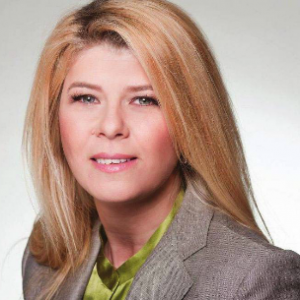
After more than 40 years of operation, DTVE is closing its doors and our website will no longer be updated daily. Thank you for all of your support.
CEE operators facing competition and consolidation challenges
Intense price competition, including from overbuilders, and barriers to consolidation are among the challenges facing cable operators in central and eastern Europe, according to a panel of regional operator CEOs and content providers at Cable Congress in Brussels yesterday.
Severina Pascu, CEO, UPC Romania and Hungary said the main differences were the lower internet penetration compared with western Europe and the lower share of people consuming content on multiple devices. She said that Hungary and Romania nevertheless have a real thirst for broadband speed.
Pascu said that the region had to some extent leapfrogged technology. She said about 25-30% of people adopted technology quickly.
Pascu said that both Hungary and Romania are extremely price competitive. However, playing that game meant operators will ultimately lose. She said UPC had focused on building value through new services. “A small segment in the market is willing to pay for high quality,” she said.
She said UPC in Romania faces a large number of network overbuilders, leading to intensified price competition. However, making sure the product on the market addresses a real customer need can help drive growth, she said. “Innovation and customer experience will drive not only revenue per subscriber but also the number of subscribers,” she said.
Pascu said demand for illegal content is sometimes due to demand being frustrated. UPC launched premium service MyPrime in December, offering content for an affordable price, which she said could counter the appeal of illicit services.
Pascu said that consolidation is necessary, but that this can be held up by unreasonable expectations about price and by other interests taking precedence.
Tomasz Zuranski, CEO of Polish cable operator Vectra said that for operators, the Polish market has matured along western European lines. However, the operator environment is still highly fragmented. “The scale is not comparable with the likes of Virgin Media,” he said.
Zuranski said that TV consumption remained largely passive and that overall TV consumption is, if anything, going down. He said he would like to see the development of advanced services where cable can play a significant role. “We need more rights for other devices,” he said. Broadcasters should also provide non-linear content and players to position themselves for the future, he said. Zuranski said there is a lot of overlapping infrastructure in Poland, which pulls down ARPU. Cable also faces competition from DTH.
Harald Rosch, CEO of Bulgarian operator Blizoo Media and Broadband sadi that ARPU in Bulgaria was about €10, meaning that operators and consumers had to be more creative in how they deliver and access services. Low ARPU is driven by low income, with average household income of about €400. Price competition adds to the downward pressure on ARPU, he said.
Rosch said four big players account for 60-70% of the Bulgarian market, while the remainder is determined by competitors who often don’t pay for content. Rosch said that BitTorrent and internet piracy was less a problem than small operators that do not pay for content. Some take content like HBO but only the big four pay for it.
Levente Malnay, CEO AMC Networks International – Central Europe, said that hours spent watching TV are high compared with other countries. However, he said, distribution competitors often undermined each other via aggressive pricing. “There are high ARPU potential customers,” he said.
Malnay said AMC has tried to clear all relevant rights for its partners, providing non-linear rights to favoured partners, but that barriers remain to getting content rights for all devices and distribution opportunities.



